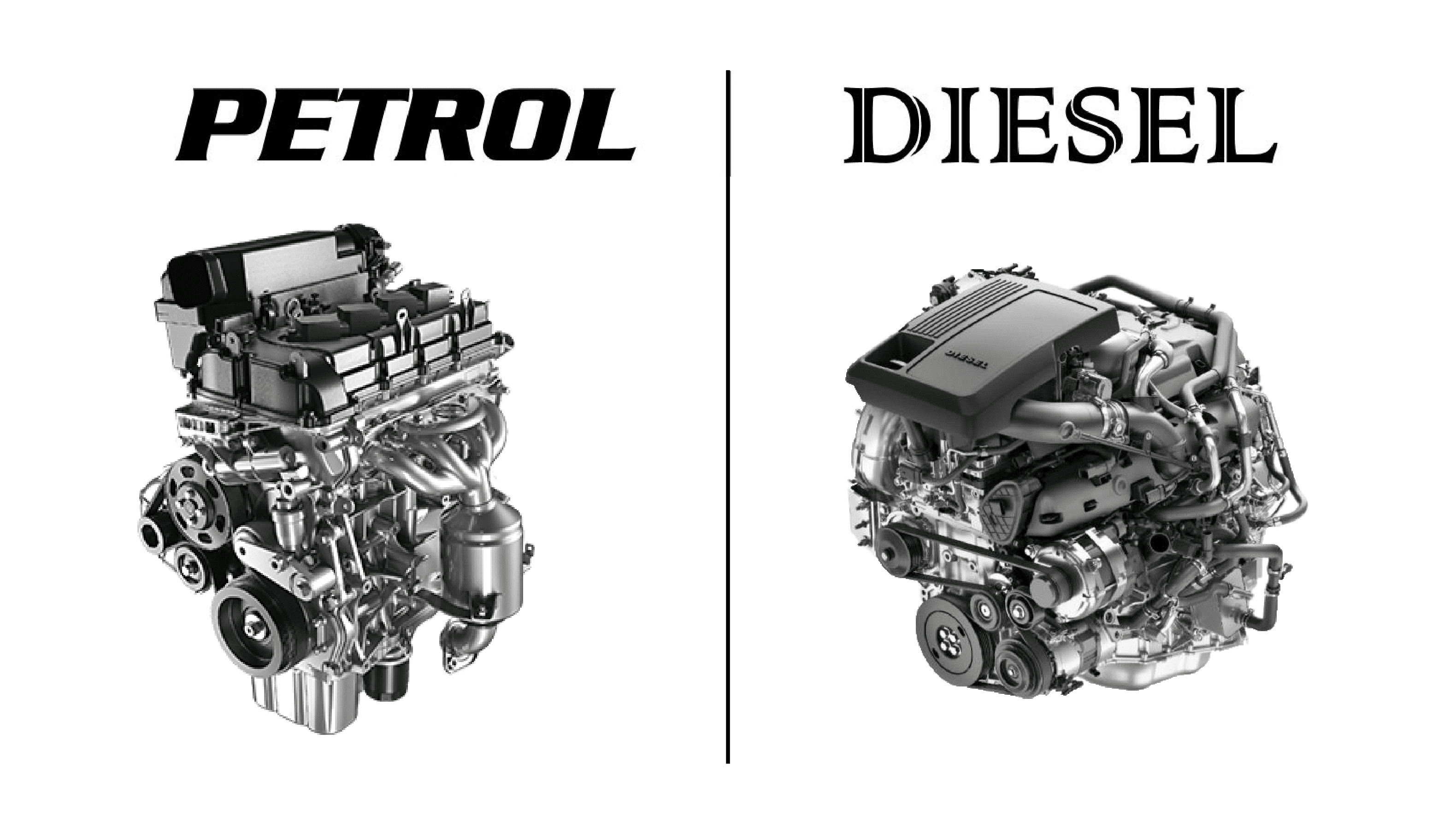Petrol vs. Diesel Engines : What You Like ?
Petrol (gasoline) engines and diesel engines are both internal combustion engines that convert fuel into mechanical energy to propel a vehicle. While they share the same basic principle of operation, there are key differences in their design, fuel requirements, combustion processes, and performance characteristics. Here's an elaborate explanation of the differences between petrol and diesel engines:
1. Fuel Composition and Ignition:
· Petrol Engine: Petrol engines use gasoline as fuel. Gasoline is a lighter hydrocarbon fuel that has a lower ignition temperature. Petrol engines rely on spark plugs to ignite the air-fuel mixture in the combustion chamber.
· Diesel Engine: Diesel engines use diesel fuel, a heavier hydrocarbon with a higher ignition temperature. Unlike petrol engines, diesel engines rely on the heat generated by compressing air in the cylinder to ignite the fuel spontaneously. This process is known as compression ignition.
 |
| Petrol vs. Diesel Engines : What You Like ? |
2. Compression Ratio:
· Petrol Engine: Petrol engines typically have lower compression ratios compared to diesel engines. The compression ratio is the ratio of the volume of the combustion chamber at the bottom of the piston's stroke to the volume at the top of the stroke.
· Diesel Engine: Diesel engines have higher compression ratios. The higher compression helps in achieving the temperature necessary for spontaneous ignition of the diesel fuel.
3. Air-Fuel Mixture:
· Petrol Engine: Petrol engines use a homogeneous air-fuel mixture. The air and fuel are mixed before entering the combustion chamber.
· Diesel Engine: Diesel engines use a lean air-fuel mixture. The air is compressed first, and then the fuel is injected directly into the highly compressed air in the combustion chamber.
4. Efficiency and Fuel Economy:
· Petrol Engine: Petrol engines are generally less fuel-efficient than diesel engines. However, they often have a higher power output for a given displacement and are known for smoother and quieter operation.
· Diesel Engine: Diesel engines are more fuel-efficient than petrol engines. They tend to have higher thermal efficiency and better fuel economy, especially in applications that involve constant-speed operation or long-distance driving.
5. Torque and Power Characteristics:
· Petrol Engine: Petrol engines typically produce higher RPM (revolutions per minute) and are known for providing higher power at higher RPM. They are often used in applications that require quick acceleration and high-speed performance.
· Diesel Engine: Diesel engines produce more torque at lower RPM, making them well-suited for applications that require high torque at low speeds, such as in trucks, buses, and heavy machinery.
6. Emissions:
· Petrol Engine: Petrol engines generally produce fewer nitrogen oxides (NOx) and particulate matter but emit more carbon dioxide (CO2) compared to diesel engines.
· Diesel Engine: Diesel engines tend to emit higher levels of NOx and particulate matter but have lower CO2 emissions due to their higher fuel efficiency.
7. Cold Weather Starting:
· Petrol Engine: Petrol engines perform better in cold weather conditions. They have lower freezing points, and the fuel vaporizes more easily, aiding cold starts.
· Diesel Engine: Diesel engines can face challenges in extremely cold temperatures as diesel fuel tends to gel and has a higher freezing point. Cold weather starting may be addressed using engine block heaters.
8. Maintenance and Longevity:
· Petrol Engine: Petrol engines generally require less maintenance and have a shorter lifespan compared to diesel engines. However, they are often less expensive to maintain.
· Diesel Engine: Diesel engines are known for their durability and longevity. They have robust construction and can withstand higher levels of stress, making them suitable for heavy-duty applications.
In summary, while both petrol and diesel engines serve the same purpose of converting fuel into mechanical energy, their differences in fuel composition, ignition methods, compression ratios, and performance characteristics make them better suited for specific applications. The choice between a petrol and a diesel engine depends on factors such as the intended use of the vehicle, fuel efficiency requirements, torque needs, and environmental considerations.


